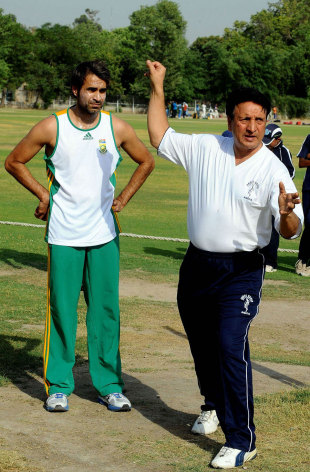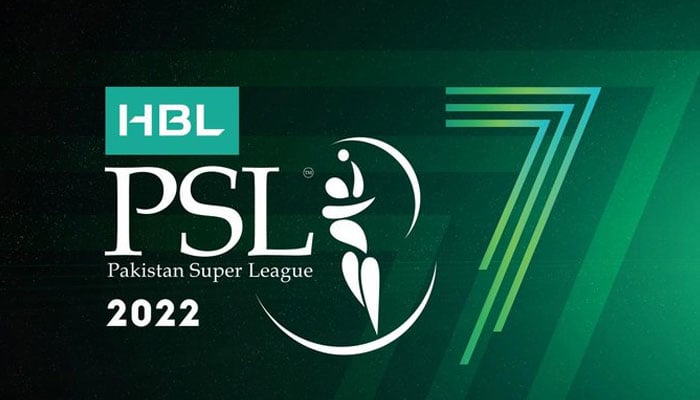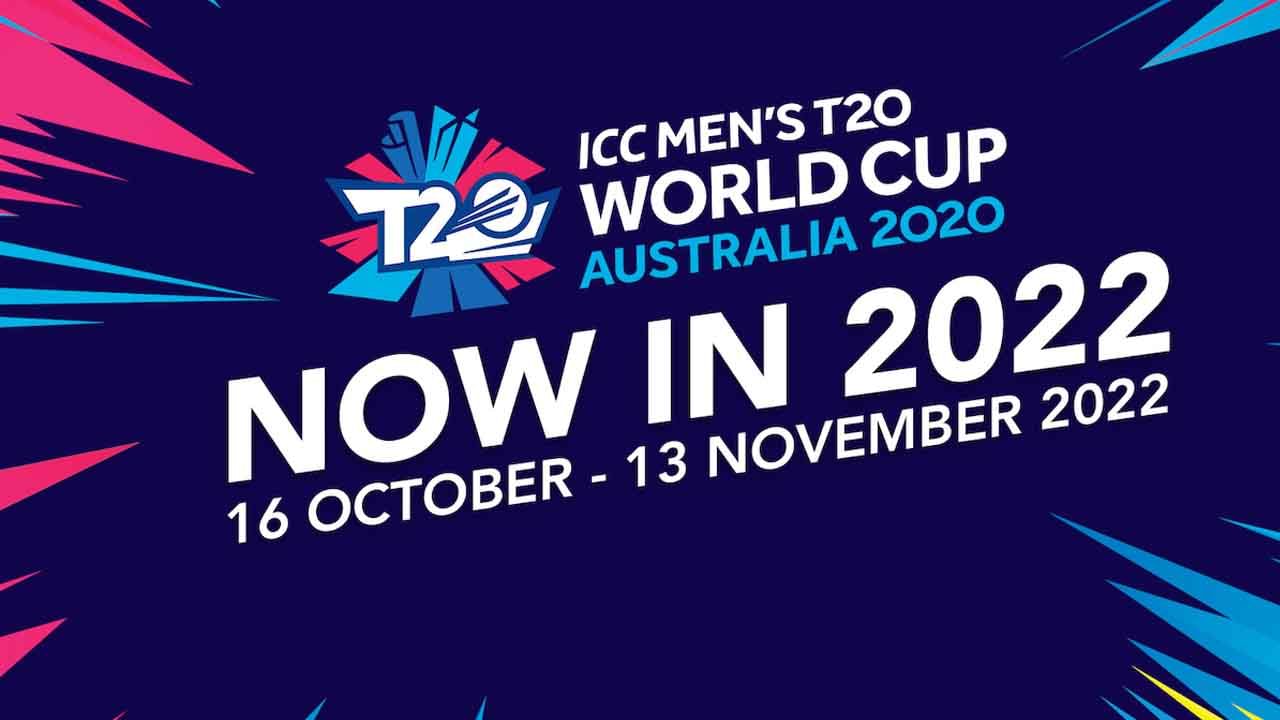
Pakistan Super League 2022
2022 Pakistan Super League is the seventh season of the Pakistan Super League, a franchise Twenty20 cricket league which was established by the Pakistan Cricket Board in 2015. The league began on 27 January 2022, with the final scheduled to take place on 27 February.
ICC Announced Schedule of 2022 ICC T20 World Cup 2022.
The International Cricket Council has announced the schedule for the 2022 ICC T20 World Cup 2022. Accordingly, the mini-World Cup to be held in Australia will take place on October 16
This is default featured slide 3 title
Go to Blogger edit html and find these sentences.Now replace these sentences with your own descriptions.This theme is Bloggerized by Lasantha Bandara - Premiumbloggertemplates.com.
This is default featured slide 4 title
Go to Blogger edit html and find these sentences.Now replace these sentences with your own descriptions.This theme is Bloggerized by Lasantha Bandara - Premiumbloggertemplates.com.
This is default featured slide 5 title
Go to Blogger edit html and find these sentences.Now replace these sentences with your own descriptions.This theme is Bloggerized by Lasantha Bandara - Premiumbloggertemplates.com.
30 May 2012
Indian engineer challenges D/L method

Zimbabwe Twenty20 Triangular Series, 2012 / Fixtures

Mon Jun 18
11:00 GMT | 13:00 local
16:00 PKT 1st Match - Zimbabwe v Bangladesh
Harare Sports Club
N/A
Tue Jun 19
11:00 GMT | 13:00 local
16:00 PKT 2nd Match - Bangladesh v South Africa
Harare Sports Club
N/A
Wed Jun 20
11:00 GMT | 13:00 local
16:00 PKT 3rd Match - Zimbabwe v South Africa
Harare Sports Club
N/A
Thu Jun 21
11:00 GMT | 13:00 local
16:00 PKT 4th Match - Zimbabwe v Bangladesh
Harare Sports Club
N/A
Fri Jun 22
11:00 GMT | 13:00 local
16:00 PKT 5th Match - Bangladesh v South Africa
Harare Sports Club
N/A
Sat Jun 23
11:00 GMT | 13:00 local
16:00 PKT 6th Match - Zimbabwe v South Africa
Harare Sports Club
N/A
Sun Jun 24
11:00 GMT | 13:00 local
16:00 PKT Final - TBC v TBC
Harare Sports Club
Du Plessis, Chris Morris get South Africa T20 call-up

South Africa's 15-man squad
|
No central contract for Ryder

Pybus appointed Bangladesh coach

The Battle of the Rain Gods

Kolkata celebrates KKR's victory

Tahir trains with Qadir in Lahore

'Captaincy is leadership, not age' :Mohammad Hafeez
They started calling me "professor" as a joke because I give a lot of feedback, and it was Ramiz [Raja] bhaiwho spread it in the media. My family and friends call me Chanda [moon].
I actually get involved in planning the team. I do a lot of calculations and assessments about the team and its position, and I'm blunt about sharing it.
Representing Pakistan at the national level is a big honour, for which I have a high regard, and being a captain of the side is the highest level you achieve as a cricketer. It's a privilege and I am thankful to the PCB for honouring me and trusting me. As a player I have earned a lot of respect. Now it's time to gain more respect as a captain.
Every captain has his own ideas and approach in executing plans. I too have plans; there is no set pattern and formulae captains follow. My idea might be a little different, but whatever it is will be with the consensus of the team management.
Pakistan is a cricket-loving country and people get too emotional, mainly because the expectations are very high. I think there is a need to understand the sport and its components. It's a game in which you can't maintain a straight winning graph because you can't have the same day every day.
I could have been an engineer. I did my FSC [higher secondary] from Sargodha College and always wanted to be an engineer, but instead I got involved in cricket and opted to do a Bachelor of Arts.
You can't succeed until you learn from your mistakes. There are good and bad experiences, and this process never ends. You shouldn't lose hope, and I strongly believe you can achieve anything through hard work. There is always a right time for everything. I agree that in those seven years I wasn't able to make an impact but I worked hard to come back.
I don't agree. It's not about your age, it's about leadership qualities. Any player who understands cricket, has ideas, and good man-management skills, can be a captain. Also, it's not important that every good player can be a captain because the qualities vary from player to player.
This is not the first time I am going to lead a side. I have been captaining at the regional level, departmental level, and the Pakistan A team, though it's different at this level. But then I know most of the players and have been playing with them over the years. I am optimistic about my captaincy and aim to become a better player and contribute in winning games. I understand I have additional responsibilities. I have to maintain a balance.
You always require the best line-up to play and the balance of the XI is important. Yes, I have been given a good combination. The best part of the team is that each player is talented and has a well-defined role. That will reduce my effort to redefine their role. We have a set combination and only need minor adjustments depending on the conditions.
| "Players like Shahid Afridi, Shoaib Malik, Umar Gul and Umar Akmal are my best men in the side, who have been performing well for years in the format" | |||
To be very honest, I am a big fan of Test cricket. It has a grace that attracts me. I really enjoy playing it because it requires a great deal of skill. I feel privileged to play this format because it lets you feel you are at the top of your profession.
Both teams will be facing tough competition. We will be wary about the fact that Sri Lanka are always tough in their home conditions, but they are not invincible. We have a good record against them in recent times. They might have experienced players, who must be warmed up after playing in the IPL, but we have kept ourselves in perfect shape too, training and practising hard in hot conditions for the last month.
I don't want to make a precise statement here but I can tell you I will walk away when I'm no longer useful. I understand every player has to go one day, but I am currently enjoying playing cricket and have maintained a good fitness level. I haven't given a thought to how long I will play but I will continue till my form and fitness favour me.
I was comparing the Pakistan team to the rest of the world. Most of the players, including those from Sri Lanka, played in the IPL under intense scenarios, which is good from a practising point of view.
28 May 2012
I am fully committed - Jerome Taylor

Letter sent by Jerome Taylor to the WICB on June 30, 2011
|
SLC looks to tighten up on player-media interaction

IPL was an educational experience, says Tamim

Kolkata take title after Bisla blitz

Bresnan burst leaves England sensing victory



















